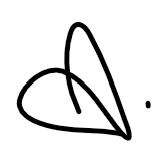This is my constant inner battle in life.
From the time I was little, I would spend an unreasonable number of hours making something look “perfect”, rather than focus on the substance (or use) of it. Part of this was driven by the fact that I simply couldn’t seem to focus if things didn’t look “right”. It was too distracting to me.
I would rewrite my school notes a thousand times, not as a means to learn, but because they seemed messy. I personified the theory of diminishing returns.
I wish I could say that I’ve overcome this with time, but I haven’t. There is still a battle within me to make messy things neat and pretty.
I’ve tried to unpack this, and have boiled it down to two things: overstimulation and procrastination.
Overstimulation.
I am introverted. I never really considered that this could explain my tendency toward “style”. But in understanding more what it means to be an introvert, one key trait that stuck out to me was susceptibility to overstimulation.
The idea of sensory overload and not being able to process properly made perfect sense. I simply couldn’t focus if the world around me was not in order or felt too busy. It was far too distracting and I had to “fix” it before I could get to the work I needed to do.
Procrastination.
By anyone’s measure, it is far easier to rewrite notes than to put my brain through the effort of studying. It is easier to try to make this website look pretty than to write this post.
However, I’m not sure if this is a side effect of overstimulation, or a separate issue altogether.
But I’ll leave that analysis for another post. Here I want to talk about some steps I’m taking to refocus more on substance and less on style.
1. Notice the behavior.
Easier said than done. It’s similar to noticing when your mind starts to wander. Usually, by the time I realize what I’m doing, I’ve emptied my closet onto my bed, or I’ve spent the better part of an hour researching “best minimal WordPress blog designs”.
This simply takes practice and just like with meditation, you hope to catch yourself earlier and earlier in the process.
2. Ask yourself, is this necessary?
This is not asking yourself do you want to do this, but if you need to do it. If you find it hard to separate want from need, try this question: will this matter a year from now?
Thinking of the impact of our actions today into the future can help to rule out bad time investments. This can also help you figure out what you should be doing instead, by asking a similar question “what will matter a year from now?”.
3. Put constraints
Now, sometimes you just have to scratch that itch. Especially in the beginning. This is where implementing constraints might be helpful. For instance, allow yourself X amount of time to work on it. It is usually best to make the constraint time or money (limited resources), rather than getting to a certain “final product”.
While there is much beauty in life to be appreciated, working on substance is what really makes it worthwhile.
np.

